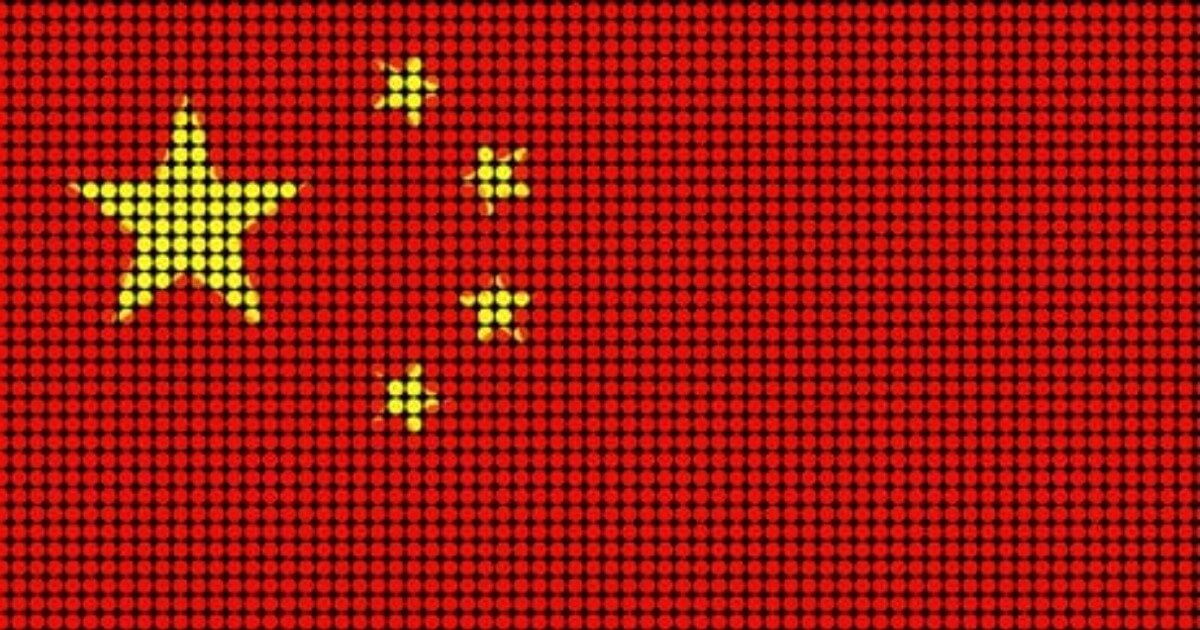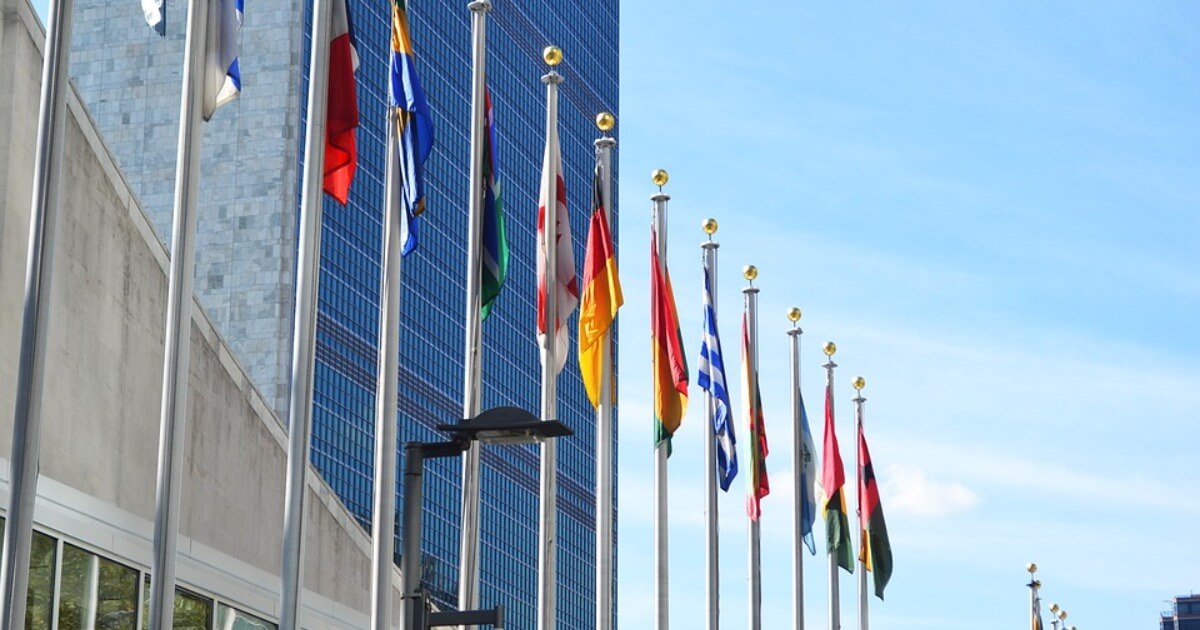Emerging Global Anarchy?
Many speculate that leadership of the world order is passing from the U.S. to China. But a more likely outcome could be growing world political disorder and anarchy.
January 30, 2024

The United States, Japan and most Western countries are panicking at the prospect of the demise of the “rules-based world order” that was carefully constructed in the decades following World War 2.
This political order provided the foundation for the extraordinary growth in prosperity over this period – especially for China, which is presently contesting this order.
Why the rules-based world order is under threat
The most optimistic interpretation is that the post-war world order stands at a turning point for a number of reasons, reflecting both its successes and failures. These include:
1. The challenge and contestation of China
The prosperity emanating from China’s model of state capitalism has enabled the Chinese Communist Party to clamp down on domestic society. It has also enabled it to foster spheres of influence worldwide, notably through the Belt and Road Initiative.
In the process, it aims to acquire many leadership positions in the United Nations’ system. The proposition that China might become a more open and pluralist country proved to be nothing but a pious hope.
Moreover, Xi’s lamb-like claims that China would become a responsible stakeholder in the world order are largely an exercise in CCP propaganda.
2. The retreat of the U.S. from world order leadership
This retreat got the biggest push under Donald Trump between 2016 and 2020. For example, he withdrew the United States from the World Health Organisation, the Trans-Pacific Partnership and the Iran nuclear deal.
Trump also undermined NATO and the WTO and insulted key allies. Worse, he cosied up to obnoxious opponents of any rules-based order like Vladimir Putin and Kim Jong Un.
When the COVID 19 pandemic hit the world, Trump’s United States renounced international leadership. He spent much of 2020 denying the importance of the pandemic and insulting China rather than encouraging the world to work together to address the pandemic.
All of this is astonishing, not least because the United States led the creation of the post-war order to make the world safe for democracy in the belief that democracies are more peaceful and prosperous.
However, Trump seems committed to undermining democracy, both at home and internationally.
3. Western governments‘ reluctance to share power
Western nations have been reluctant to give emerging powers well-deserved space in the rules-based order. This undermines the credibility of the order.
For example, France and the United Kingdom are jealously hanging onto their unjustified permanent United Nations Security Council seats. This is denying more deserving cases like India and Brazil (along with Japan and Germany).
In an extraordinary case of political petulance, the United States refused to join the Asian Infrastructure Investment Bank, created by China. While the United States bullied its allies to follow suit, only Japan did so.
Another anachronism is that China accounts for about 18% of the global economy, but has only been granted a little over 6% of the voting share in the International Monetary Fund.
Where to next?
It is difficult to see a clear resolution to the forces undermining world order. There are three basic scenarios on offer.
Option 1: The U.S. rising again?
As early as the decade of the 2000s, there were clear signs that the United States had lost its way as a global leader – with the Iraq and Afghanistan wars and the 2008/09 Global Financial Crisis.
The reaction of the Global South to the Ukraine and Gaza wars reveals a regrettable lack of trust in U.S. global leadership. The United States has lost much political capital that it has little to draw on, even when it might be justified.
President Biden has provided the United States and the world with a return to sane leadership in the midst of an immensely complex array of problems – the Ukraine war, the Gaza war, Chinese belligerence and the United States’ broken society and political system – although he hasn’t been able to reverse all of Trump’s nefarious actions.
Even so, it is far from clear that he will achieve satisfactory outcomes for these problems. Moreover, the possibility of a return of Trump, or someone of his ilk, to the U.S. presidency casts a dark shadow over the future world order, as does a U.S. Congress which is reluctant to cooperate with the President, whoever that may be.
Option 2: China
For its part, China is a problematic case and incapable of world leadership. Domestically, the economy has deep problems. Also, there are many signs of dissension at the top of the leadership, especially in the military. Internationally, it has very few friends.
Most countries are very wary of China’s coercive behaviour. And major international initiatives like the Belt and Road Initiative have not been crowned with success.
In short, with its actions, the Chinese leadership is actively undermining its own rise in the global order, both domestically as well as internationally.
Option 3: Muddling through
In today’s world, we are unable to solve geopolitical problems, the best we can do is to “manage” them. To achieve a modicum of stability, it will be critical for the West to ensure a balance of power with illiberal forces.
But keeping order is increasingly complex in a world where conflict can be waged with a variety of instruments – not only with traditional military means, but also cyber, economic and information tools of warfare.
Conclusion
In sum, the most likely scenario is one of growing global disorder with adverse consequences for the world economy and political stability.
The tell-tale signs of the global anarchy to come range from the conflicts in Ukraine and Gaza, the inadequate responses to climate change, to COVID 19, artificial intelligence as well as rising economic protectionism.
Takeaways
Many speculate that leadership of the world order is passing from the US to China. But a more likely outcome could be growing world political disorder and anarchy.
The US, Japan and most Western countries are panicking at the prospect of the demise of the “rules-based world order” that was carefully constructed in the decades following World War 2.
Western nations have been reluctant to give emerging powers well-deserved space in the rules-based order. This undermines the credibility of the order.
With its actions the Chinese leadership is actively undermining its own rise in the global order, both domestically as well as internationally.
In today’s world, we are unable to solve geopolitical problems, the best we can do is to "manage" them. To achieve a modicum of stability, it will be critical for the West to ensure a balance of power with illiberal forces.
Keeping order is increasingly complex in a world where conflict can be waged with a variety of instruments – not only traditional with military means, but also cyber, economic and information tools of warfare.
The tell-tale signs of the global anarchy to come range from the conflicts in Ukraine and Gaza and the inadequate responses to climate change, to COVID 19, artificial intelligence and rising economic protectionism.

